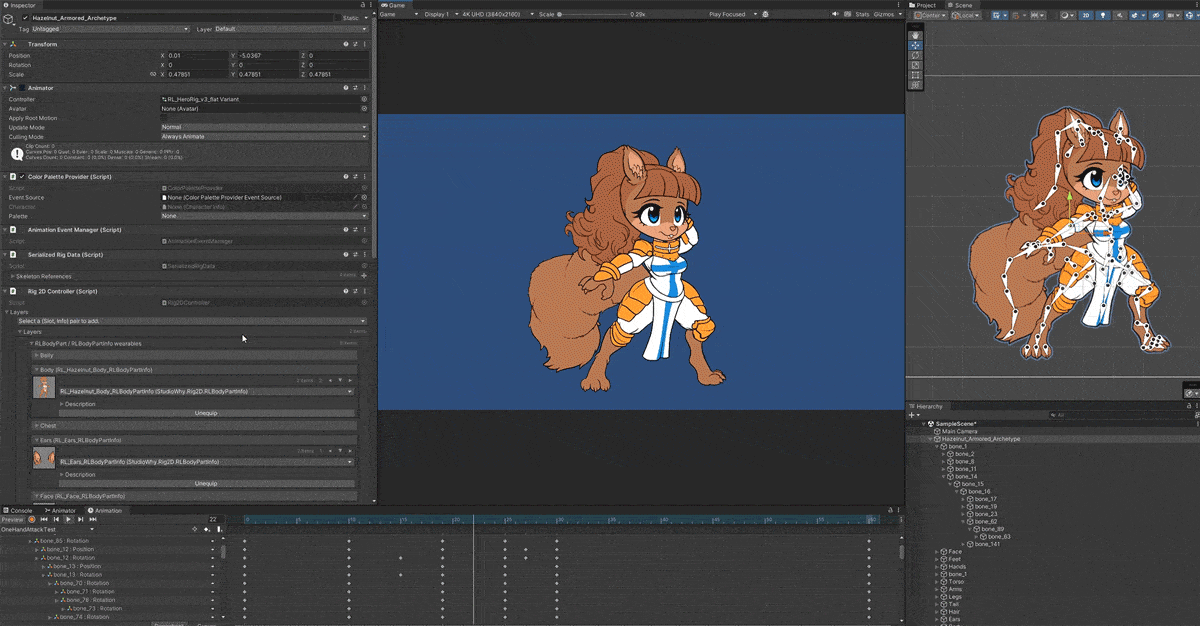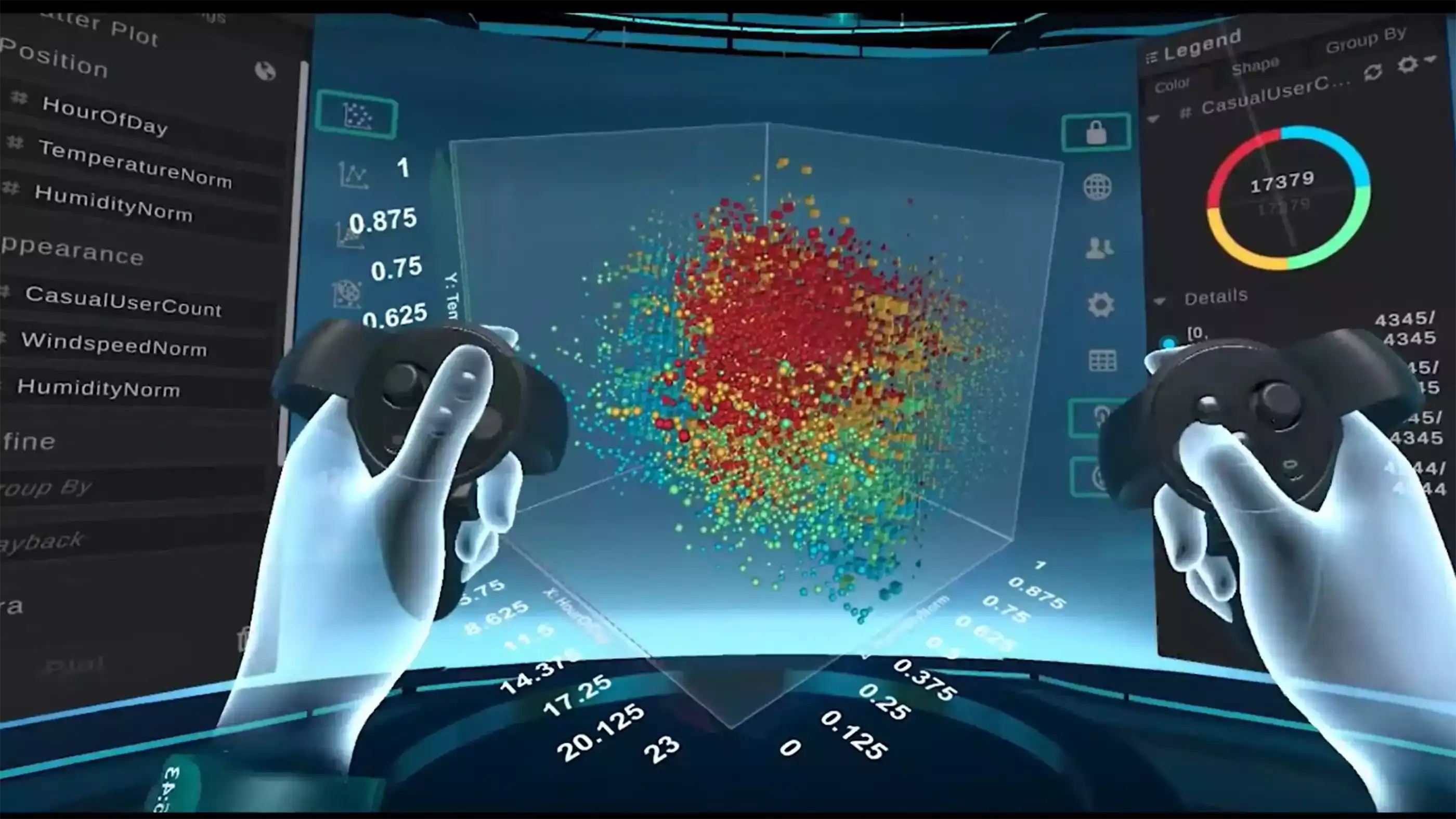As a sophomore, Joshua Biggs once told DigiPen that when he graduated, “I want to go off and do my own thing.” Ten years later, that’s exactly what Biggs is doing, and then some. Working as a senior software engineer at VR data analytics company Virtualitics by day and running his own independent game studio by night, all while authoring innovative new tools for the Unity Asset Store on the side, Biggs found a common thread that has allowed him to weave his tech career and personal creativity together: the versatility of game engines.

Biggs originally came to DigiPen as a BA in Game Design student, but switched to the BS in Computer Science and Game Design program his sophomore year. “I was getting frustrated with the slow speed of tool development on my team and decided to start learning how to code in our C++ engine so I could make the tools myself,” Biggs says. “I also found that I enjoyed programming a lot more than I thought I would and sort of had a knack for it, so I decided to switch.”
At DigiPen, Biggs discovered his passion not just for programming, but tool development in particular — creating tools from scratch that allowed designers and artists on his team to streamline their workflow. In Paper Cut, his junior year 3D game team project with a distinct cardboard visual style, Biggs developed a tool that enabled his team to easily create “pop-up book” effects, allowing players to pull tabs that turn flat shapes into 3D forms. “Paper Cut was an amazingly fun project, and I’m still really good friends with my teammates,” Biggs says. “One of them even does contract programming work for me at my own company.”
Biggs founded his own indie game studio in 2017, the same year he graduated from DigiPen and began working as a software engineer at the augmented reality company Magic Leap. Today, his studio includes a team of 10 part-time developers creating original visual novels and adventure titles — many inspired by the 90s-era Choose Your Own Adventure books and PC edutainment games of Biggs’ youth — that have developed what he calls, “a small but passionate fanbase.” That first year out of college also revealed how closely his non-game tech industry work and personal creative projects could align. “At Magic Leap, I would often finish tools work for my job and then start working on our games immediately after. Both were in Unity!” Biggs says. “Just learning more about the engine at work, it was almost like double dipping. The same skills in one applied to the skills in the other.”
In 2022, Biggs took his talents to Virtualitics, a company working on the cutting edge of 3D data visualization and analytics by combining the power of AI and virtual reality. “Making games isn’t cheap, so my income from Virtualitics really helps support my game company financially,” Biggs says. Working as a senior software engineer, Biggs is something of a Swiss army knife on his team, where he tackles a variety of complex, detail-oriented programming tasks. Yet again, Biggs found himself harmoniously tapping into his game engine talents both at work and his own studio.
The skills you learn building these tools in game engines transfer over at non-game companies!
“At Virtualitics, a good portion of my work was initially with Unity. Game engines enable a big variety of applications that can do some really powerful stuff,” Biggs says. “It’s cool because if you want to make your own games, the skills you learn building these tools in game engines transfer over at non-game companies! You’re still building an experience for people to interact with, and you need to make that as good as possible, so it’s quite similar.”
Having thoroughly honed those symbiotic game engine skills both at work and at home, Biggs is working on an original new tool for Unity he plans to release on the Unity Asset Store by the end of the year — Rig2D. “When you want to equip armor and weapons in a game and have them appear on your character, in 3D, this process is fairly straightforward,” Biggs explains. “In 2D, however, this type of equipment system is only ever really done on very simple puppet-style rigs like in Scribblenauts or Paper Mario.” Rig2D aims to simplify the time-consuming process of bringing complex 3D-style character rigs with dynamic equipment systems into 2D character animation. “If the rigs in Scribblenauts are akin to Lego people, the rigs made with our system are more akin to Bionicles,” Biggs laughs.

Biggs’ tools are designed to help improve more than just his own studio’s workflow — they are also meant to aid other developers in maximizing their creative potential, regardless of personal technical skill. “I really want to help enable that creativity, and I want to see more artists be able to create without fear or worry,” Biggs says. “That’s why my company has also been working on a system that will hopefully help anyone, including artists, be able to self-host all the applications needed for game development.”
Biggs says learning to trust those personal creative instincts, no matter the odds, was one of the most valuable takeaways from his time at DigiPen. “If you are ever doubting your creative self or wondering why you’re doing what you’re doing, always remember that the right question isn’t ‘Why?’ but rather, ‘Why Not?’ As long as you never stop asking questions and never give up your desire for learning, it will all be worth it.”
